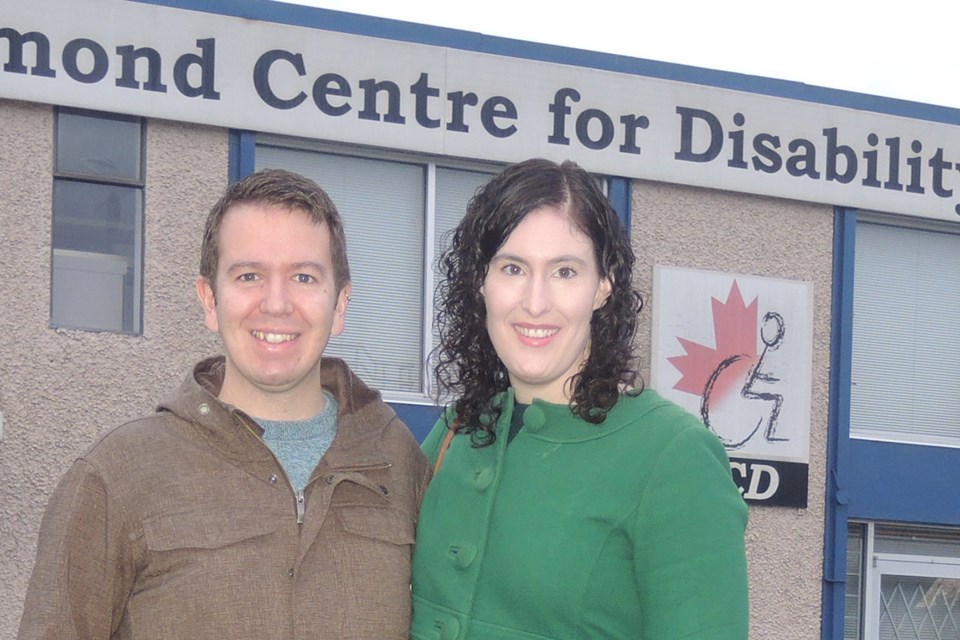Delving into the world of online dating is not an easy task for many people.
Projecting the right image — one you are comfortable with — for all the world to see is a main concern. And it’s one that is magnified for some people with a disability who can struggle in daily life trying to get others to see past their physical circumstances.
That’s why the husband and wife team of Arley McNeney and Chris Cruthers have been invited to present a workshop on Feb. 23 at Richmond Centre for Disability on the subject of online dating and the unique challenges disabled people can encounter.
“We, as a hobby for a long time, made over our friends’ online dating profiles,” said McNeney, a paralympian in wheelchair basketball and a communications instructor in the school of business at Kwantlen Polytechnic University in Richmond. “So, we started a little side business called Sidekick Dating, where we re-do those profiles. Chris does the photos and I re-write the profiles.”
One of the foremost challenges for online daters with a disability is knowing the right time to reveal the fact they have a disability. It’s often a fine line that can have undesired consequences.
“I think, especially women with disabilities often get approached online by people with disability fetishes — people who are not going to be giving them the attention they want,” McNeney said.
That can often result in the online applicant not divulging their disability until they get to know the other person better.
“But that can also cause unpleasantness, as well,” McNeney said. “You don’t want to wait too long and show up to the first date in a wheelchair when you haven’t told the other person that you have a disability.”
Depending on the individual case, revealing a disability can be done after a few email messages have been exchanged and a better understanding and sense of trust has been developed.
“That gives you one level or so of protection,” McNeney said.
While there are online dating sites that focus specifically on listing disabled people, many clients are not interested in that avenue.
“Sometimes there can be great matches coming from those sites, but often people looking for partners on there have disability fetishes,” she said. “The majority of the disabled community are in search of a partner who is interested in them as a full person, rather than someone who is interested in their disability.
“I do think it’s possible to find a love match on there (disability-focused sites), but I know a few friends who have had more negative experiences.”
So far, the duo have had good feedback from initial workshops and their tips on creating a mini online bio that is more likely to draw interest, whether one is disabled or not.
“A lot of people aren’t good at determining what about themselves is interesting,” McNeney said.
“Online dating sites put you in a weird situation where you can be a good partner but not be good at describing yourself in life in 200 words or less. Not everyone has that skill to write about themselves in a concise and interesting manner.”
The problem with one client’s initial bio was that it casted him in too humble a light — a relatively common fault.
“For example, he said, ‘I still don’t know what I want to do with my life or in my career,’” McNeney said. “That, to a lot of people reading online bios, seems like he doesn’t have a job and is just searching around. In reality, he had a great job and a really focused career path. He just hadn’t found his dream job as yet.”
Currently, the couple host a Facebook page for would-be daters but are working on a website, which they hope to launch in the summer.
For more information about the upcoming workshop at Richmond Centre for Disability, call 604-232-2404.



